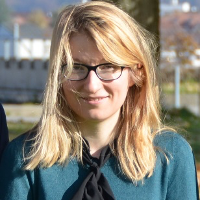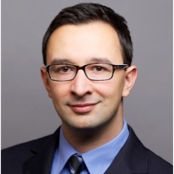Social Media and Digital Work
Track description
Social media have long since become an integral part of the digital (working) life of millions of users. Platforms are based on the concept of user-generated content, and their success depends on the active participation and involvement of their members. At the same time, they enable the virtual exchange of information and knowledge within virtual teams and groups or even reach a global audience. Despite the visualized character of social media, the role and long-term consequences of this phenomenon for the digital transformation on an individual, organizational and social level need to be better understood.
On the one hand, proponents argue that social media contribute to the formation of social capital, lead to increased networking or facilitate social support and collective action. On the other hand, critics express strong concerns about the risks of social media. The sheer volume and sensitivity of the information that users disclose gives rise to a reinterpretation of privacy. In addition, the influence of social media on the mental health of users is being investigated, with empirical evidence pointing to undesirable developments such as addiction, depression and mood disorders. In companies, the multi-vocality enabled by social media can lead to tensions regarding organizational coherence. Finally, phenomena such as fake news and hate speech have recently emerged as dangerous developments that pose significant challenges for providers and users.
This track seeks contributions that address the role that social media play in the transformation of the networked society and businesses in general. In particular, we encourage research that goes beyond established IS theories, draws on multiple reference disciplines, and applies new fascinating perspectives to document and understand the transformative impact of social media and the mobile use of devices associated with them.
Possible topics
Topics include, but are not limited to:
● social media and theories of digital collaboration
● Digital leadership and virtual teams
● Social channels of knowledge exchange and cooperation in companies
● Personal knowledge management and social media
● Blurring boundaries between private and working life (e.g. consumerization, shadow IT)
● Social media-based business models
● Organizational networking with social media and collaboration technologies
● Human interaction with corporate bots/social bots
● Use of social media for citizen and political participation
● The development and use of social media analytics
● Digital methods for understanding social media collaboration (e.g. design science approaches, big data analytics)
● Critical perspectives on social media (e.g. social and information overload, technostress)
● Social media in crisis situations
● Fake News and Hatespeech in Social Media
● Cyberloafing, Cyberslacking
● Problematic Internet use: social media and smartphone addiction
● Social media and well-being
● intersection of social media and culture/gender/generations
● Co-Creation in Social Media Contexts
Track Chairs

Hanna Krasnova is Professor of Information Systems, especially Social Media and Society, at the University of Potsdam and Director at the Weizenbaum Institute for the Networked Society in Berlin. In her research, she focuses on the social, individual and corporate value of emerging social media applications. She is the author of over 60 research articles published in ISR, JSIS, JIT, EJIS, WI / BISE and in the proceedings of ICIS as well as at other IS conferences.

Matthias Trier is Professor for Business Informatics and Social Computing at the University of Paderborn. He researches phenomena related to the implementation/appropriation of social media, the framing of electronic discourse and event-driven dynamic network analysis. Prof. Trier has led EU projects and published in conferences and ranking journals, e.g. ISR, EJIS, ISJ or JCMC. He served as a long-time track chair of the social media tracks at ECIS 2014-2020 and WI 2019-2020.

Christian Meske is Assistant Professor for Digital Transformation and Strategic Information Management at the Department of Information Systems at Freie Universität Berlin. He studied at the University of Potsdam, received his doctorate at the University of Münster and was a postdoc at the University of Duisburg-Essen. His research on digital transformation, digital collaboration and the future of work has been published in journals such as Business & Information Systems Engineering, Business Process Management Journal, Communication of the Association for Information Systems, Information Systems Frontiers, Information Systems Management, Journal of Enterprise Information Management and several others.

Milad Mirbabaie is an interim professor for Business Informatics at the University of Bremen and team leader at the University of Duisburg-Essen. He studied Business Informatics at the University of Hamburg and received his doctorate at the University of Münster. He has published in renowned journals such as Journal of Information Technology, Internet Research, Information Systems Frontiers and International Journal of Information Management. His work focuses on digital society, socio-technical systems, social media and crisis management. In 2017 he was awarded the Claudio Ciborra Prize for the most innovative research article at the European Conference on Information Systems.
Associate Editors
- Paul Alpar, Philipps Universität Marburg
- Christine Bauer, Johannes Kepler Universität Linz
- Benedikt Brendel, Universität Göttingen
- Ann-Kristin Cordes, WWU Münster
- Christian Ehnis, The University of Sydney
- Marina Fiedler, Universität Passau
- Lisa Giermindl, FHS St. Gallen
- Fenne große Deters, Universität Potsdam
- Janine Hacker, Universität Liechtenstein
- Michael Leyer, Universität Rostock
- Mathias Klier, Universität Ulm
- Oliver Posegga, Universität Bamberg
- Christian Reuter, Technische Universität Darmstadt
- Björn Ross, The University of Edinburgh
- Petra Schubert, Universität Koblenz
- Stefan Smolnik, Fernuniversität Hagen